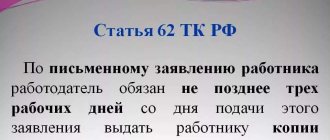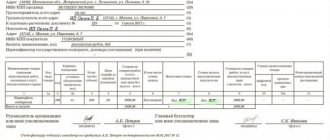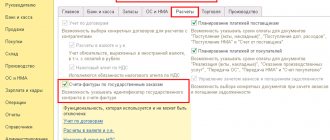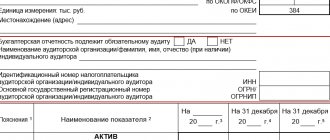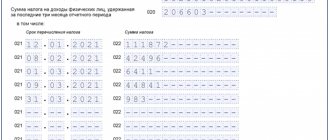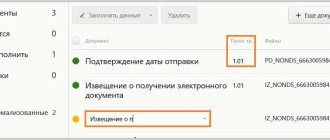Some intermediaries are not tax agents
First of all, the latest news about changes to VAT in 2021 was brought by Federal Law No. 335-FZ of November 27, 2017 (hereinafter referred to as Law No. 335-FZ).
According to it, from January 1, purchasers of a number of goods must perform the duties of tax agents for VAT. These changes apply to the VAT on scrap metal from 2021. And also (new clause 8 of Article 161 of the Tax Code of the Russian Federation):
- ferrous metal and non-ferrous metal waste;
- raw animal skins;
- secondary aluminum and its alloys.
Sales of these types of goods in Russia are no longer exempt from value added tax. That is, the buyer, as a tax agent, calculates VAT. An exception is made only for ordinary individuals who do not have individual entrepreneur status.
Let us recall that tax agents must calculate and transfer to the treasury the appropriate amount of VAT, regardless of whether they are responsible for paying this tax.
Also see “How to calculate VAT”.
1. Subjects of the all-Russian payment system.
2. Telecom operators that are specified in the Law of June 27, 2011 No. 161-FZ “On the National Payment System”.
Consequences of change: ↑
Organizations will continue to have questions for a long time related to innovations that appeared thanks to the adopted Federal Law No. 238-FZ of July 21, 2014.
The government tried to take into account all the nuances and weaknesses of the previously existing legislation.
With the entry into force of the innovations, the conduct of commercial activities has become easier for both selling organizations and purchasing enterprises.
pros
Among the advantages of the adopted changes it is worth noting:
- simplification of document flow;
- reducing the number of indicators in the purchase book (there is no need to note the price without VAT);
- determining the date of sale of real estate;
- reducing the formation of inconsistency in financial transactions;
- elimination of double taxation. This innovation will have a beneficial effect on enterprises that open or have representative offices or branches abroad;
- partial abolition of keeping journals on the movement of invoices.
The advantages of the adopted changes are quite noticeable for organizations operating both in the domestic market of Russia and abroad. However, every law adopted has its own weaknesses.
Flaws
The activities of each enterprise are very specific. After all, an organization can be called a living organism that changes daily.
Modern companies must work efficiently and respond instantly to various external and internal factors.
The authorities are constantly adopting and amending current legislation. Business managers are required to take into account innovations, especially those related to the taxation system.
The changes brought about by Federal Law No. 238-FZ of July 21, 2014, adopted in the summer, should have a positive effect on the activities of organizations.
Perhaps due to the implementation of some specific operations, some companies will feel the disadvantages of the introduced changes. Time will tell.
Practical examples
A sales company operating under the OSNO (general taxation system) provided services to a company using the simplified taxation system (USN).
According to the legislation that was in force until October 1, 2014, the seller must issue an invoice with allocated VAT.
However, the organizations entered into an agreement not to issue invoices. In this case, the seller has the right not to issue an invoice to the buyer.
Next example. The seller received an advance from the buyer in the amount of RUB 118,000. and from this amount I paid VAT 18,000 rubles to the budget.
The purchasing company accepted this amount as a deduction. The seller transferred products in the amount of 94,400 rubles. (including VAT RUB 14,400).
According to the concluded agreement, only half of the advance payment is offset against payment for shipment, that is, 59,000 rubles, where VAT is 9,000 rubles.
Thanks to the adopted innovations, the seller, having completed the first shipment, has the right to claim a deduction, and the buying company must restore the tax that falls on 59,000 rubles, that is, 9,000 rubles.
The seller will deduct the amount of the remaining advance VAT, and the buyer will recover it when the advance is offset against the completed shipment.
What are the changes regarding VAT?
The changes affected corporate property tax, profit tax and VAT. In addition, a number of adjustments have been made to part one of the Tax Code of the Russian Federation concerning tax audits and controlled transactions.
The procedure for determining the tax base for VAT when the taxpayer receives an advance payment towards the upcoming transfer of property rights has been clarified. For example, when transferring rights to residential buildings, garages and parking spaces. The tax base will be determined as the difference between the amount of the advance and the amount of expenses for the acquisition of these rights.
Writing off expenses for employee vacations
From January 1, 2021, the provisions of the law dated April 23, 2018 No. 113-FZ will come into effect. the cost of vouchers for employees as income tax expenses . But only if they satisfy the following conditions:
- The employer did not organize the tour himself, but purchased the ticket from a tour operator.
- The employee is on vacation in Russia.
- No more than 50,000 rubles were spent on vacation for each employee or his family member. At the same time, the cost of rest, voluntary health insurance and medical services for employees should not exceed 6% of the amount of labor costs.
- The year of purchase of the voucher is 2021. The voucher can be purchased for an employee, his spouse, a child, or a parent.
Note! It is often difficult to understand the timing of the entry into force of legislative changes, since they are not always clearly stated. Tables will help with this.
For what purpose were the amendments made?
The law was developed based on the results of work carried out by experts and the business community to identify measures that require a priority decision as part of the “customization” of the tax system, the need for which was indicated by the President of Russia in his Address to the Federal Assembly of December 1, 2016.
The amendments are aimed at streamlining documents submitted to the tax authorities, reducing the administrative burden on businesses, and ensuring stability and predictability of the tax system.
When there is no right to deduct input VAT
Also, changes to VAT from January 1, 2021 affected recipients of subsidies and investments from the treasury. From this date, payers do not have the right to deduct input VAT on goods, works or services purchased at the expense of these government funds (new clause 2.1 of Article 170 of the Tax Code of the Russian Federation).
There is no right to deduct VAT even if the subsidy goes to the authorized capital of the enterprise.
In connection with this amendment, the tax restoration mechanism is spelled out in more detail, when the subsidy pays for the purchase price, but partially.
Also see “The most common VAT violations for 2017.”
Increase in VAT rate to 20%
Law No. 303-FZ of August 3, 2018 changes the usual VAT rate. From January 1, 2021, it is set at 20% instead of the current 18% . The change affected only the base rate - the preferential rate, as before, remains at 10%. Let us remind you that in accordance with Article 164 of the Tax Code of the Russian Federation, preferential categories of goods include children's, medical products and food products, which are included in a certain list.
The estimated VAT rate will also be changed - from 15.25% to 16.67%. It is applied in accordance with the requirements of Article 158 and paragraph 5 of Article 174.2 of the Tax Code of the Russian Federation. That is, in the case when the enterprise is sold entirely as a property complex, as well as when providing electronic services by companies from abroad.
Note! The Ministry of Finance in letter dated 08/06/2018 No. 03-07-05/55290 explains the issue that interests many VAT payers. What rate should I apply if prepayment is received before the beginning of 2021, and shipment will take place next year? According to officials, in this case a rate of 20% should be applied .
No VAT when transferring target property in special economic zones
Based on the Law of November 27, 2017 No. 351-FZ, from January 1, 2018 there is no VAT on the free transfer to regional and municipal authorities of property created for the implementation of agreements on the creation of special economic zones - SEZ (Articles 146 and 170 of the Tax Code of the Russian Federation).
Example
A joint-stock company, 100% of the shares of which belongs to the Russian Federation, created within the SEZ, transfers property to companies created with its participation - SEZ management companies.
In addition, SEZ JSCs and management companies are no longer required to restore the amounts of VAT previously deducted on such property.
From 2021, movable property is not subject to corporate property tax. The concept of “movable property” is excluded from the object of taxation.
In connection with the abolition of the movable property tax, the procedure for determining the tax base has been changed. According to the new edition of clause 1 of Article 376 of the Tax Code of the Russian Federation, the tax base is determined separately in relation to each piece of real estate. Accordingly, all rules on benefits for movable property within the rate of 1.1%, which regions can now set, are abolished.
The tax on movable property of legal entities is cancelled.
A certain tax relief will also come into force from the beginning of next year. It will affect organizations that own movable property - these objects will no longer be taxed . Until the beginning of 2021, the old order is maintained, when benefits for movable property are established by the regions.
Thus, from January 1, 2021, legal entities will pay property tax only on the real estate on their balance sheet.
Note! All assets must be included in the 2018 property tax report, otherwise the company may be subject to a fine.
Zero VAT for re-export: conditions
Operations for the sale of goods exported as part of re-export were affected in 2021 by a change in the VAT rate to zero (Federal Law No. 350-FZ dated November 27, 2017, hereinafter referred to as Law No. 350-FZ). In this case, a mandatory condition of 0% VAT is if previously the goods (including processed products, waste, residues) underwent the following customs procedures (subclause 1, clause 1, article 164 of the Tax Code of the Russian Federation):
- processing in the customs territory;
- free customs zone;
- free warehouse.
According to the law, in order to confirm zero VAT for re-export, you need to submit to the Federal Tax Service, among other things, the following documents:
- original or copy of a foreign trade contract;
- original or copy of customs declarations;
- copies of transport and shipping certificates.
Application procedure for VAT refund
Amendments to Article 176.1 of the Tax Code of the Russian Federation have reduced the minimum threshold of taxes paid for using the declarative procedure for VAT refund from 7 billion to 2 billion rubles. For guarantors, the requirement to pay taxes is also reduced from 7 billion to 2 billion rubles. At the same time, the amount of obligations under guarantees increases from 20% to 50% of the value of net assets.
Yes, the period for conducting a desk tax audit of a VAT return is reduced from 3 to 2 months. Tax officials will be able to extend the inspection period to 3 months if facts are established indicating the presence of violations. For example, such a basis for extending the inspection to 3 months may be the fact of discrepancies in the documents of the seller and the buyer.
Zero VAT for re-export: conditions
It has become possible to abandon the zero VAT rate for exports and related services - this is another new thing in the payment of VAT in 2021 thanks to Law No. 350-FZ (new edition of Article 164 of the Tax Code of the Russian Federation).
These changes give exporters the right to refuse the 0% VAT rate:
- directly when exporting goods;
- their transportation.
To do this, you need to submit a corresponding application to the tax office. The deadline is until the 1st day of the quarter from which the company wants to deduct VAT at a rate of 10 or 18%.
And you can’t:
- apply different rates to a product even when purchased by different people;
- selectively waive zero VAT on specific transactions.
In addition, if you refuse zero VAT, you can return to it only after 1 year.
The VAT rate has been set at 0% for goods sold that are exported from Russia to the countries of the Eurasian Economic Union (EAEU): Armenia, Belarus, Kazakhstan, Kyrgyzstan. The procedure for its use is prescribed.
A 0% VAT rate for export can be confirmed by a contract with a Russian organization for the supply of goods to its separate division outside the customs territory of the EAEU. Now, to confirm the zero rate, you need a contract with a foreign organization or a copy thereof. This requirement creates difficulties.
Contracts (agreements) previously submitted to the tax authority are not subject to re-submission for the purposes of applying the zero VAT rate. Instead, you should send a notification to the tax authorities. It indicates the details of the document with which the contract or agreement was submitted, as well as which inspection it was sent to.
The rules on documents confirming the right to a zero VAT rate on export transactions are undergoing significant changes. Copies of transport, shipping and (or) other documents are excluded from the list of such documents. These documents will need to be submitted only when exporting supplies, as well as at the request of the tax authorities, if any inconsistencies are identified.
There are also other amendments to the export VAT.
Elimination of the need to provide documents for the export of goods
The above-mentioned 302-FZ will give exporters the opportunity to more easily apply a zero VAT rate when exporting . If documents were previously submitted electronically, there will be no need to submit them upon export. The tax office will receive information from Customs. The rule applies from October 1, 2021.
If invalid information is detected, the taxpayer will be asked for data and copies of documents that will confirm the export of goods outside the Customs Union. This requirement must be satisfied within 30 days from the date of receipt, otherwise the zero rate will not be confirmed.
What innovation will allow you to argue more competently with tax authorities?
Inspectors will be required to hand over a copy of the interrogation protocol to the witness in person against signature. Let us remind you that now inspectors are not obliged to provide the witness (often an employee of the organization being inspected) with a copy of the interrogation protocol, even if he asks for it. Now the received copy of the protocol will allow you to better prepare for a possible dispute with the tax office.
The deadline for submitting documents and information on a specific transaction has been extended from five to 10 working days. The period is calculated from the date of receipt of the tax authorities’ request. Such information may be requested from the parties to the transaction or other persons who have the necessary information. If you do not have documents and information, please report this within the same period.
Documents for zero VAT on parcels abroad
In addition to payments, you can choose what to submit from 2 options (new sub-clause 7, clause 1, article 165 of the Tax Code of the Russian Federation):
- original or copy of the CN 23 declaration (with Russian customs marks);
- original or copy of the customs declaration (with Russian customs marks) and original or copy of the CN 23 declaration.
The point is that for 2021, a separate list of supporting documents for international postal parcels was not clearly stated in the Tax Code of the Russian Federation.
Let us remind you that export VAT must be justified 180 calendar days after the start of this customs procedure. The documents are submitted along with the declaration for this tax.
Also see “New VAT return form from 2021: what has changed in it.”
Review of important news and innovations
So, thanks to significant legislative adjustments, changes are planned for October that will become the basis for the use of VAT rates in 2021.
Making an advance payment on property rights
Regarding changes in this area, all information is disclosed by Art. 154 Tax Code of the Russian Federation. According to the document, receiving an advance payment involves calculating the tax base based on the amount received, including VAT; the adjustment began to work on October 1, 2018.
Regarding property rights, paragraph 1 of this article has been adjusted. According to the innovations, the tax base will be equal to the difference between the amount of the prepayment and the one specified in the requirements for payment for the transfer of rights, calculated on the basis of the prepayment for which significant rights are transferred.
That is, VAT will be required to be deducted from the date of transfer of property rights, calculated on the basis of the specified scheme. Here you will find out what has changed in the procedure for obtaining a deduction for land tax.
Changes and innovations for 2021 regarding VAT are discussed in detail in the following video:
Expanding the list of operations taking into account 0 rates
From 2021, the list of export participants who will be able to use VAT at 0% has expanded.
Previously, only those carriers who provided railway rolling stock and containers for the transportation of products, based on the ownership of the transport or its lease, had the right to use such a rate, based on restrictions.
Now this restriction has been lifted, which means that more taxpayers will be able to use the zero rate.
Innovation during export
In 2021, Federal Law No. 350 was edited in a new format based on the application of No. 164 of the Tax Code of the Russian Federation, which guarantees the opportunity to refuse the zero rate when transporting goods abroad and similar services.
Waiving the 0% rate is now possible:
- directly during the transportation of products;
- when exporting it.
This opportunity arose due to the presence of several problems regarding the use of zero percent:
- complicated application of 0%, the right to it must be constantly confirmed, otherwise you will have to pay VAT at 18% for all contractors;
- on invoices it is possible to deduct VAT only at 18%, and not at 0%.
Important: the deadline for refusal is the 1st day of the quarter, from which the taxpayer expects to apply a rate of 10% or 18%.
To do this, you need to contact the Federal Tax Service with a corresponding application.
In this case, it is unacceptable:
- use different rates for one batch of goods, even if the purchase was made by different persons;
- make selective refusals for certain actions;
- If you refuse 0% VAT, you can return it back only after a year. Here you will find step-by-step instructions on how to recover VAT from the budget.
From 2021, in order to use the zero rate when exporting parcels by mail, you can use the following documents as confirmation:
- payment slips – their originals and copies;
- unified reporting form CN 23 - original or photocopy, the main thing is the presence of Russian customs marks;
- actual customs declaration or a photocopy with the corresponding marks from the Russian side.
Important: specification regarding the list of documents in 2021 occurred due to the approval of Art. 165 of the Tax Code of the Russian Federation, since until this moment this list was uncertain.
At the same time, there is no longer any need for enterprises to apply a foreign trade contract based on changes in Federal Law No. 350.
Important: in this case, documents to justify the export tax must be submitted along with the declaration no later than 180 calendar days after the start of the customs procedure.
What are the new VAT refund rules?
Clarification regarding the application procedure for VAT refund
From the beginning of October, barriers for those who want to receive a VAT refund from the budget will be significantly reduced. Such application of new changes within the framework of Art. 176.1 Tax Code of the Russian Federation.
Within the framework of a desk audit, the following will be able to take advantage of this opportunity:
- those who over the previous 3 years have paid at least 2 billion rubles to the budget for various taxes and fees, minus agency and export-import taxes. In this case, the limit has been changed, since previously it was 7 billion rubles;
- the entrepreneur who concluded and submitted to the Federal Tax Service an agreement regarding the guarantee for the payment of VAT, which is a guarantee if, during the desk audit, the inspector indicates a different amount or refuses compensation;
- the guarantor must now have at his disposal no more than 50% of net assets, since previously this figure was equal to 20%.
Deadlines for desk audit of VAT returns
Based on Federal Law No. 302 of 2021, the maximum period for conducting a desk audit has now been reduced to 2 months. But inspectors have the right to increase this period if they suspect that the taxpayer has committed illegal actions.
Moreover, such a reduction in the period is possible only in relation to verification of declarations submitted to the Federal Tax Service after the law came into force, namely after August 3.
Important: at the same time, foreign companies whose taxation is regulated by Art. 83 of the Tax Code of the Russian Federation remain on the same temporary regime for verification every six months.
Is there a restriction on re-requesting documents?
Yes, the amendments define how to act if inspectors request documents or information again. It has been established that documents (information) previously submitted to the tax authorities, regardless of the basis for their submission, may not be submitted provided that the tax authority is notified within 10 business days of receipt of the request that they have already been submitted.
The notification must indicate where the requested information was submitted, as well as provide details of the document with which it was sent.
The “five percent rule” has been clarified
Regarding VAT, new legislation in 2021 affects companies that have taxable and non-taxable transactions. Changes were made by Law No. 335-FZ.
Thus, clause 4 of Art. has been clarified. 170 of the Tax Code of the Russian Federation, which talks about the “five percent rule”. In particular:
- compliance with it allows you to deduct input VAT in its entirety, while from 01/01/2018 it is impossible not to maintain separate accounting;
- This rule does not apply when the goods are involved only in non-VAT-taxable transactions.
The grounds for recognizing transactions as controlled have been clarified, so there will be fewer of them. For example, domestic transactions worth over 1 billion rubles are exempt from transfer pricing control.
Transactions through intermediaries, as well as transactions with interdependent foreigners, will be controlled if their annual income exceeds 60 million rubles. Before the adoption of the amendments, such transactions came under control regardless of the amount of income.
The list of persons recognized as tax agents for VAT has been expanded. Now they also include Russian railway carriers carrying out activities on the territory of the Russian Federation in the interests of another person on the basis of intermediary agreements related to the provision of services for the provision of rolling stock and (or) containers.
VAT changes from October 1, 2019: ↑
Government representatives have repeatedly proposed increasing the VAT rate. This is due to the fact that this tax brings a large share of revenue to the federal budget.
After all, such a payment is made not only by organizations operating in the domestic market of the Russian Federation, but also by enterprises importing goods.
In connection with the sanctions that many countries have adopted against Russia, analysts predict a fall in imported products, and accordingly, VAT revenues to the budget from enterprises working with imports will also decrease.
However, modern realities show that the organizations operating in the domestic market of the Russian Federation will primarily suffer from the VAT increase.
Therefore, active talk about increasing the value added tax rate remains just talk for now.
This causes relief for large, medium and small enterprises that are obliged to accrue and pay this payment to the budget.
Let's take a closer look at what's happening with VAT since January 1, 2014. Which articles are affected by the innovations.
Clarification of the contents of Art. 148
Sales of services, products or works are subject to VAT if they are produced on the territory of the Russian Federation. Since October 1, amendments have been made to Article 148.
From now on, the place of sale of goods, services or work is specified: the data specified in the constituent documents during state registration of the enterprise is taken.
The changes made concern branches and representative offices of the organization. If the constituent documentation states that a branch of the enterprise is located abroad, then the sale of work (goods, services) at this representative office is not subject to VAT.
This rule was adopted so that organizations can avoid double taxation by carrying out sales outside of Russia.
Changes under clause 16 of Art. 167
This article has changed clause 16 “Moment of determining the tax base” related to the sale of real estate.
The earliest of two days was recognized as the time of shipment:
- date of full or partial payment;
- the day of transfer of goods, performance of work, provision of services.
Now, when selling real estate, the date of determination of the tax base must be considered the moment of transfer of real estate to the buyer according to a transfer document, for example, a transfer deed.
Changes to deductions (Article 170 and Article 172)
Amendments have been made to paragraph 6 of Art. 172 of the Tax Code of the Russian Federation “Procedure for changing tax deductions” and subparagraph 3 of Art. 170 of the Tax Code of the Russian Federation “The procedure for allocating tax amounts on the production and sale of goods, works, services.”
These changes affected those cases when payments between the buyer and seller are carried out on partial or full prepayment.
Let's look at an example. The selling company received an advance payment for the products from the buyer. The organization shipped the goods, but its cost was less than the amount of the advance payment received.
In such a situation, the buyer is obliged to restore VAT in the amount indicated on the invoice. It turns out that the amount of recovery is equal to the amount of tax indicated by the selling company.
The innovations also provide for those cases when the agreement between the parties states that prepayment includes payments for the implementation of individual stages of the provision of services or performance of work, as well as individual batches of products.
In such cases, value added tax is restored in the amount that falls on part of the prepayment.
According to current legislation, the selling organization must calculate and transfer VAT within the period of receipt of advance payment from the buyer.
However, now it has the right to accept the amount of VAT, which is calculated from an advance payment, as a deduction after the provision of services, performance of work or shipment of goods. This rule is noted in paragraph 1 of Art. 172 of the Tax Code of the Russian Federation.
New edition of Art. 169
Before the adoption of Federal Law No. 238-FZ of July 21, 2014, all taxpayers who carry out various business transactions were required to issue invoices.
Video: accountant LIVE. Changes in VAT from October 1, 2019 (238-FZ)
According to the innovation in the legislation, from now on taxpayers have the right not to draw up an invoice for those counterparties (buyers of services, works, goods) who are not VAT payers or are exempt from paying value added tax.
Important note. The seller has the right not to draw up an invoice only if there is mutual agreement to this effect in writing between him and the buyer.
If there is no agreement, then the parties must act in the previously established manner.
Clarification under Art. 174
The innovations affected clauses 5, 5.1 and 5.2 of Art. 174 Tax Code of the Russian Federation. They will take effect from January 1, 2021.
Thus, from the beginning of next year, taxpayers who were required to keep a log of received and issued invoices may not do so.
However, this change does not affect everyone. For example, this does not include intermediaries, even those who are not VAT payers. Such a group will have to keep a journal.
VAT 0% on air transportation in the Kaliningrad region
Law No. 353-FZ dated November 27, 2017 introduced zero VAT on domestic air transportation of passengers and baggage in the Kaliningrad region from January 1, 2021. This is a new sub. 4.2 clause 1 art. 164 Tax Code of the Russian Federation.
The procedure for reviewing materials received by tax authorities during tax audits and additional tax control activities has been clarified. Now the person being inspected (his representative) has the right to familiarize himself with the inspection materials before their consideration. If the taxpayer is not given this opportunity, the relevant evidence will not be examined during the examination.
The procedure for carrying out additional tax control measures (requesting documents, questioning witnesses and conducting examinations) has also been clarified. If, before the adoption of the amendments, inspectors did not draw up any single document completing additional measures, now they will be required to draw up an addition to the tax audit report.
Thanks to this, it will be easier to understand what exactly the inspectors’ complaints are. Tax officials will be required to provide the taxpayer with an addition to the act within 5 business days from the day this addition is issued. They will have to attach to it the materials received during additional activities. The taxpayer will be able to submit written objections to the addition to the act within 15 days from the date of receipt of such addition.
Tax free law
The law will come into force on September 3, 2021, with the exception of certain provisions. For example, the amendment to pay VAT on prepayments for the transfer of property rights will take effect on October 1.
For foreigners, changes in the payment of VAT from 2021 will be especially relevant. The fact is that Law No. 341-FZ dated November 27, 2017, finally introduced a tax-free mechanism in Russia on January 1. This is the right of foreigners (not from EAEU countries) to receive a VAT refund on purchases made in Russia (tax free).
Moreover, the new VAT refund system definitely does not apply to excisable goods. It is possible that the Russian Government will expand this stop list.
To receive a VAT refund, a foreigner must purchase goods worth at least 10,000 rubles within 24 hours. You can return the tax by bank transfer or in cash through the operator at the airport. This is regulated by the new Article 169.1 of the Tax Code of the Russian Federation.
It is important that sellers who participate in the tax free mechanism will be able to deduct VAT that was returned to foreign individuals. It is believed that this is a very beneficial system for the budget of our country.
1. The enterprise (its division) is engaged in retail trade.
2. It deducts VAT.
3. Included in the special register of the Ministry of Industry and Trade of Russia.
And that's not it. The Government of the Russian Federation, by a separate resolution, establishes:
- locations of such trading firms;
- conditions that they must meet in order to be included in the tax free system.
As a result, the tax will be returned to the seller on the basis of a tax free check with a customs mark on the export of the goods and provided that the VAT on it is compensated to the foreigner. The deduction is due to the seller within 1 year from the day when the foreigner is compensated for VAT.
Let us clarify that foreigners will be reimbursed for VAT directly by trading companies or other payers who have entered into agreements with them. These services are subject to 0% VAT. The right to zero tax, of course, will have to be confirmed. But from 10/01/2018 it will be easier to do this.
New reasons for recalculating the cadastral value of real estate
On January 1, 2021, Law No. 334-FZ dated 03.08.18 will come into force, which will change the list of reasons for recalculating the cadastral value of real estate . Starting next year it will look like this:
- An error in the USRN data or in determining the cadastral value.
- Decision of a commission or court in case of unreliable value of property.
- Changes in the qualitative and (or) quantitative characteristics of an object.
- Establishment of the market value of an object by a commission or court.
In the meantime, there are only two such reasons : the decision of the commission to consider disputes or the court, as well as the incorrectly calculated cadastral value.
The list of airport services will be established by the Government of the Russian Federation
As you know, there is no VAT on services provided directly at Russian airports and the airspace of our country for aircraft maintenance, including air navigation services (subclause 22, clause 2, article 149 of the Tax Code of the Russian Federation). But what exactly are these airport services? It seems that the long-standing confusion on this issue has come to an end.
Thus, Law No. 305-FZ dated October 30, 2017, with amendments to the Tax Code of the Russian Federation, says that from January 1, 2018, the list of airport services that are free of VAT is determined by a separate document by the Government of the Russian Federation.
No VAT when releasing materiel from the state reserve
By virtue of the Law of November 14, 2017 No. 316-FZ, from January 1, 2018, the release of material assets to responsible custodians and borrowers from the state reserve is exempt from VAT due to:
- their refreshment;
- replacements;
- in order of borrowing.
Special rules for determining the tax base and the procedure for determining the VAT rate for the sale of valuables by responsible custodians and borrowers are also regulated.
Also see “What will change in 2021: taxes, insurance premiums, reporting, accounting and a new fee.”
If you find an error, please highlight a piece of text and press Ctrl Enter.
Account blocking due to failure to submit RSV
Federal Law No. 232 of July 29, 2018 amended paragraph 3.2 of Article 76 of the Tax Code. Now the head of the tax office can decide to block the current account of a company or individual entrepreneur if the Calculation of insurance premiums was not submitted on time. Previously, this violation was punishable only by a fine.
The new rule came into force on August 30 of this year, so accountants should be more careful and not miss the deadline for submitting the next calculation. Let us remind you that the DAM for 9 months must be submitted no later than October 30.
Income tax
Starting from 2021, the scheme for participants to deposit funds (property, property rights or non-property rights in the amount of their monetary value) into the account or balance sheet of an organization with the wording “in order to increase the net assets of the company” will not work. Such wording is excluded from paragraphs. 3.4 clause 1 art. 251 of the Tax Code of the Russian Federation as amended by Federal Law No. 286-FZ of September 30, 2017.
From January 1, 2021, the following will be exempt from taxation (clauses 3.4, 3.7 clause 1 of Article 251 of the Tax Code of the Russian Federation as amended by Federal Law No. 286-FZ of September 30, 2017):
- income in the form of unclaimed dividends by participants, or part of the distributed profit of a business company or partnership, restored as part of retained earnings (that is, what the organization already had);
- income in the form of property, property rights or non-property rights in the amount of their monetary value, which were received as a contribution to the property of a business company or partnership in the manner established by the Civil Code of the Russian Federation.
Income in the form of property rights to the results of intellectual activity identified during the inventory carried out by the taxpayer is exempt from taxation. This benefit is valid for only two years: from January 1, 2021 to December 31, 2019 inclusive. This period was established by legislators for the identification and legal registration of previously unaccounted for intangible assets (new clause 3.6 clause 1 of Article 251 of the Tax Code of the Russian Federation, introduced by Federal Law No. 166-FZ of July 18, 2017).
From January 1, 2021, taxpayers can apply a special increasing factor to the depreciation rate, but not higher than 2, only to fixed assets that have high energy efficiency and are not buildings (clause 4, clause 1, article 259.3 of the Tax Code of the Russian Federation, as amended by the Federal Law of September 30, 2017 No. 286-FZ).
Government duty
The wording of Article 333.33 of the Tax Code of the Russian Federation has been changed, a new subclause 138 has been added to its paragraph 1. Its norms establish a state duty for the issuance of federal special and (or) excise stamps with a two-dimensional bar code for labeling alcoholic products. Its size is 0.16 rubles for each stamp.
According to the norms of the new edition of Article 333.18 of the Tax Code of the Russian Federation, when applying for a legally significant action specified in the new subparagraph 138 of paragraph 1 of Article 333.33 of the Tax Code of the Russian Federation, payment of the state duty must be made after submitting the application and documents for such an action, but before the issuance of federal special stamps and excise stamps marks.

